Puppy Care Made Easy: Essential Tips for New Dog Parents
Got a fluffy newcomer at home? You’re probably wondering how to keep the little guy safe, happy, and well‑behaved. The good news is you don’t need a degree in dog psychology. A handful of clear steps can set you and your pup on the right track.
Training and House‑breaking Basics
Start with a consistent schedule. Feed, potty, and play at the same times each day. Puppies love routine; it helps them understand when it’s time to go outside. Take your pup out first thing in the morning, after meals, and before bedtime. If you miss a spot, a quick clean‑up with an enzymatic cleaner stops the smell from inviting repeat accidents.
Crate training is a game‑changer. A crate gives your puppy a den‑like space where they feel safe. Keep the crate cozy with a soft blanket, but don’t use it as punishment. When you see signs they need to go—sniffing, circling, or whining—rush them to the door. A short “go potty” cue works wonders once they learn the connection.
When it comes to teaching commands, keep sessions under five minutes. Short, upbeat lessons keep their attention and prevent frustration. Use a single word like “sit” or “stay” and reward immediately with a treat or praise. Consistency across family members is key, so agree on the same cues and rewards.
Sleep, Crate, and Grooming
Most puppies can’t hold their bladder through the night until they’re about three months old. Expect a few midnight trips to the door. If you’re sleep‑deprived, set an alarm for the first couple of weeks to take them out at regular intervals. As they grow, the night‑time trips will fade.
Should a puppy sleep in a crate? Yes, most of the time. The crate provides security and helps prevent accidents on the floor. Place the crate in a quiet part of the house, but not too far from you—puppies often feel better hearing your breathing.
Grooming isn’t just about looks; it’s about health. Brush your puppy a few times a week to remove loose fur and check for ticks or skin irritation. A gentle bath every month keeps their coat clean without stripping natural oils. If your pup seems constantly dirty, look at their play habits—muddy games can be fun, but a quick wipe after play keeps “Dirty Dog Syndrome” at bay.
Finally, think about when to let your pup roam free at home. Wait until they’re reliably house‑trained and can follow basic commands. Puppy‑proof the area: move cords, secure trash, and block off stairways. Once those boxes are checked, you can open the gates and let them explore safely.
Every puppy is different, but these core steps—schedule, crate, short training bursts, and regular grooming—create a solid foundation. Stick with them, celebrate the small wins, and enjoy the journey. Your pup will grow into a well‑behaved companion, and you’ll get a lot more sleep along the way.
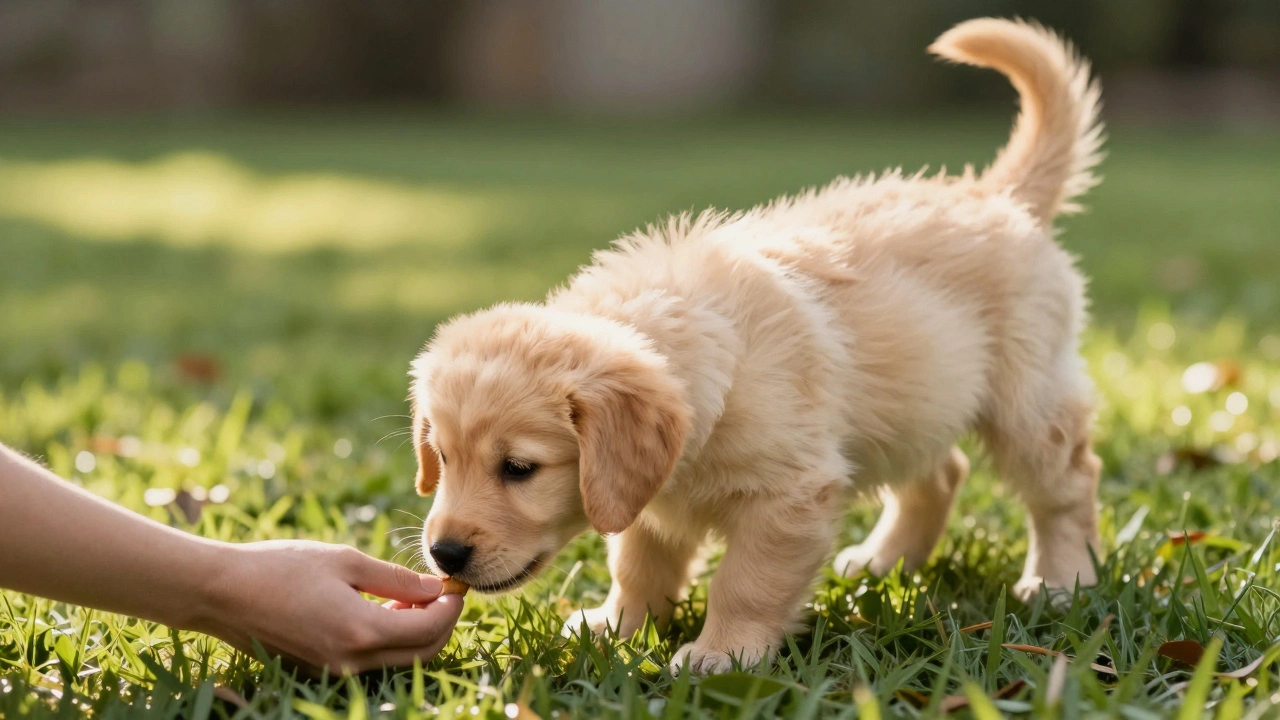
Can an 8-Week-Old Puppy Be Potty Trained? Yes, Here’s How
Yes, an 8-week-old puppy can be potty trained. With a consistent schedule, positive rewards, and patience, most puppies learn quickly. Start early to avoid bad habits and build trust.
View more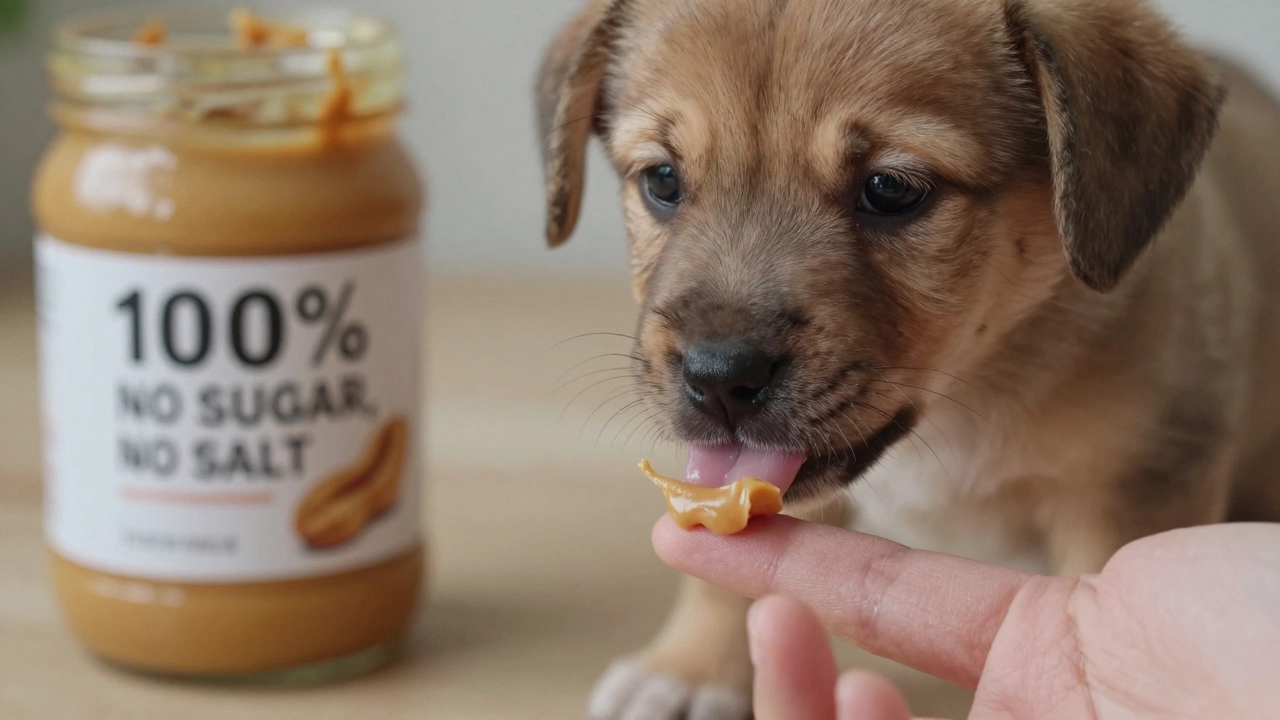
Can Puppies Have Peanut Butter? Safe Ways to Serve It
Peanut butter can be a safe treat for puppies if you choose the right kind and give it in small amounts. Avoid brands with xylitol, sugar, or salt. Use it sparingly as a training reward or frozen toy filler.
View more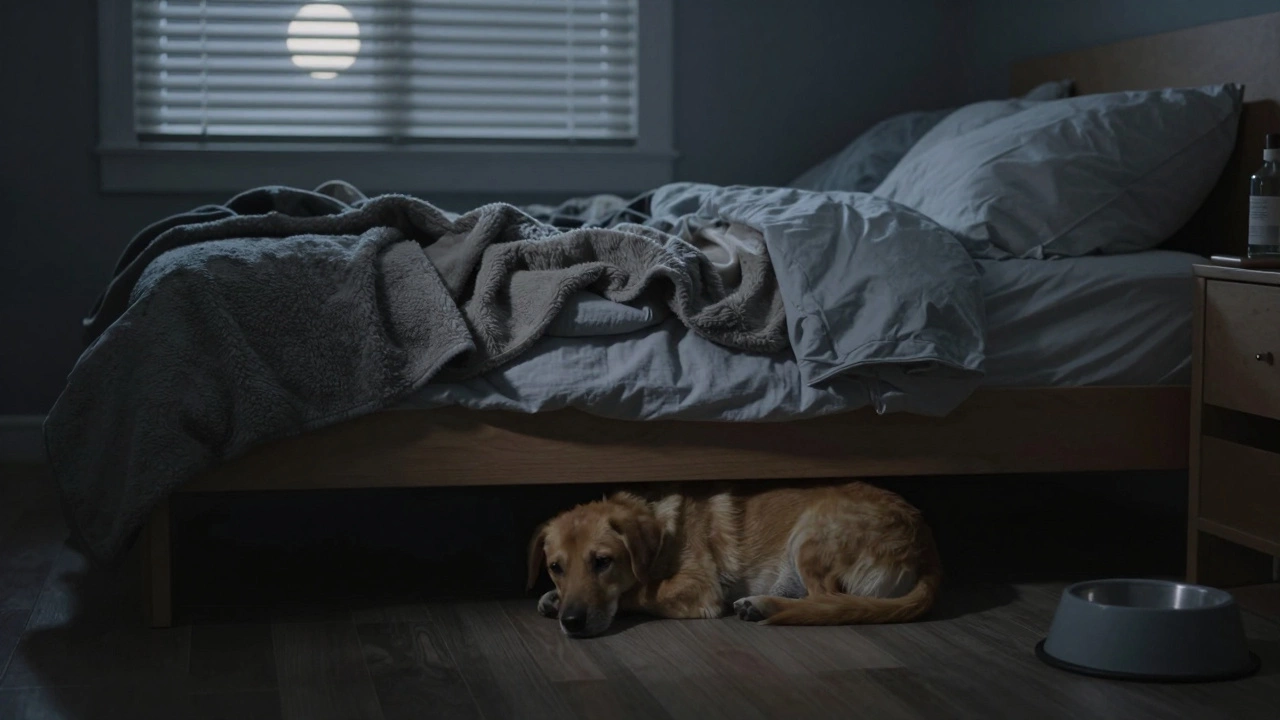
What Is the 3-3-3 Rule for New Dogs? A Simple Guide for Puppy Owners
The 3-3-3 rule helps new dog owners understand how long it takes for a dog to adjust: 3 days to feel safe, 3 weeks to relax, and 3 months to truly bond. Simple, realistic, and backed by experience.
View more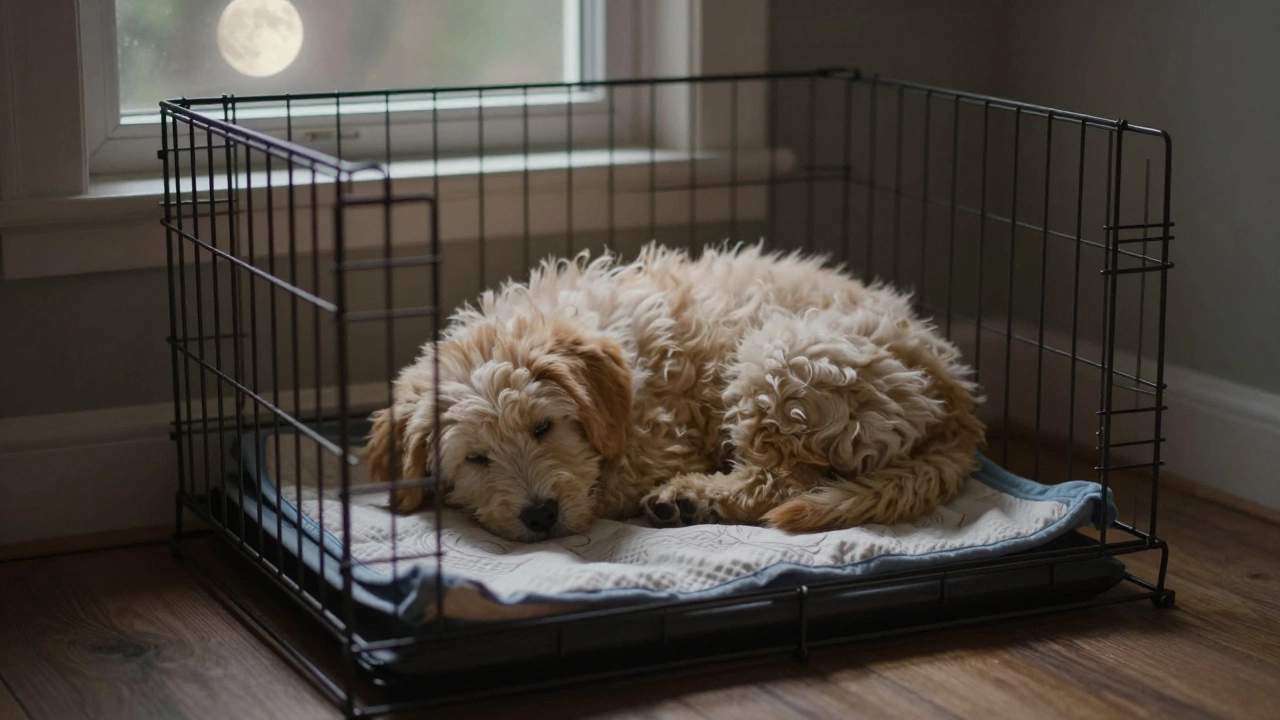
Where Should an Untrained Puppy Sleep? A Simple Guide for New Owners
Where your untrained puppy sleeps matters more than you think. Learn the safest, most effective spot for their first nights-and how to set up a routine that builds trust, prevents accidents, and leads to a calm adult dog.
View more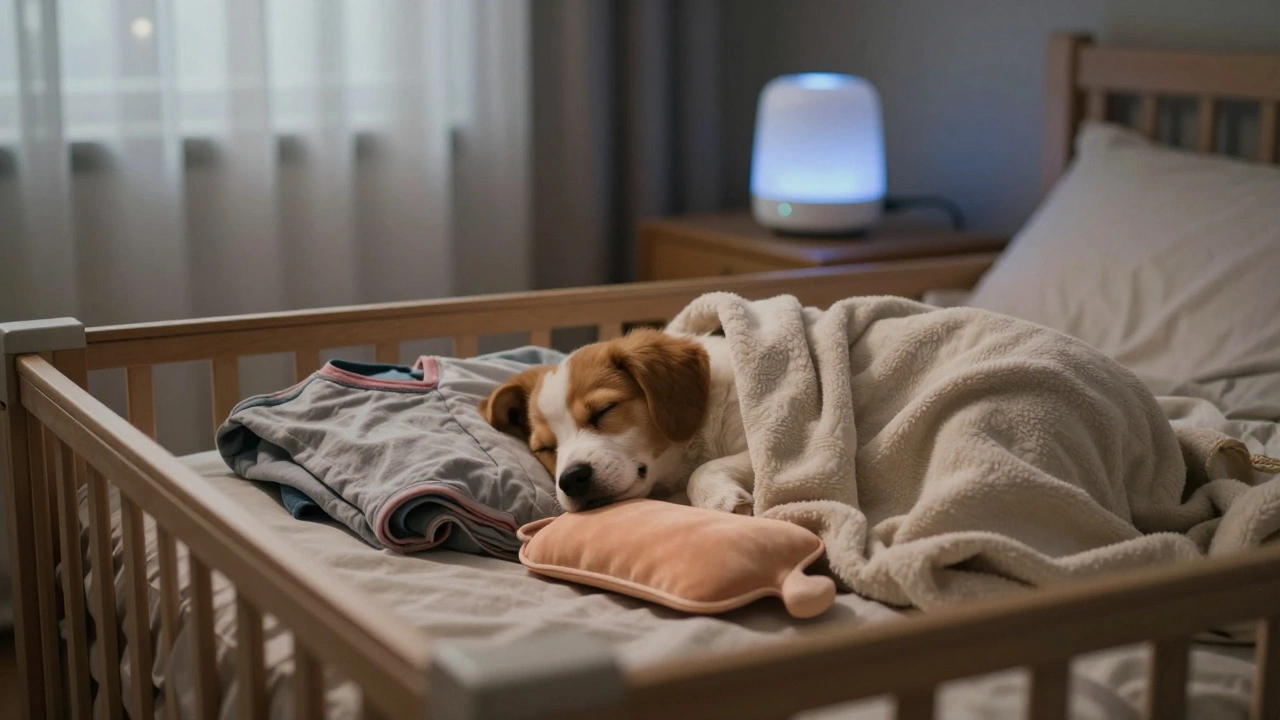
Should I Leave the TV On at Night for My Puppy?
Leaving the TV on at night won't calm your puppy-it might make anxiety worse. Learn what actually helps puppies sleep peacefully and how to build lasting confidence without relying on screens.
View more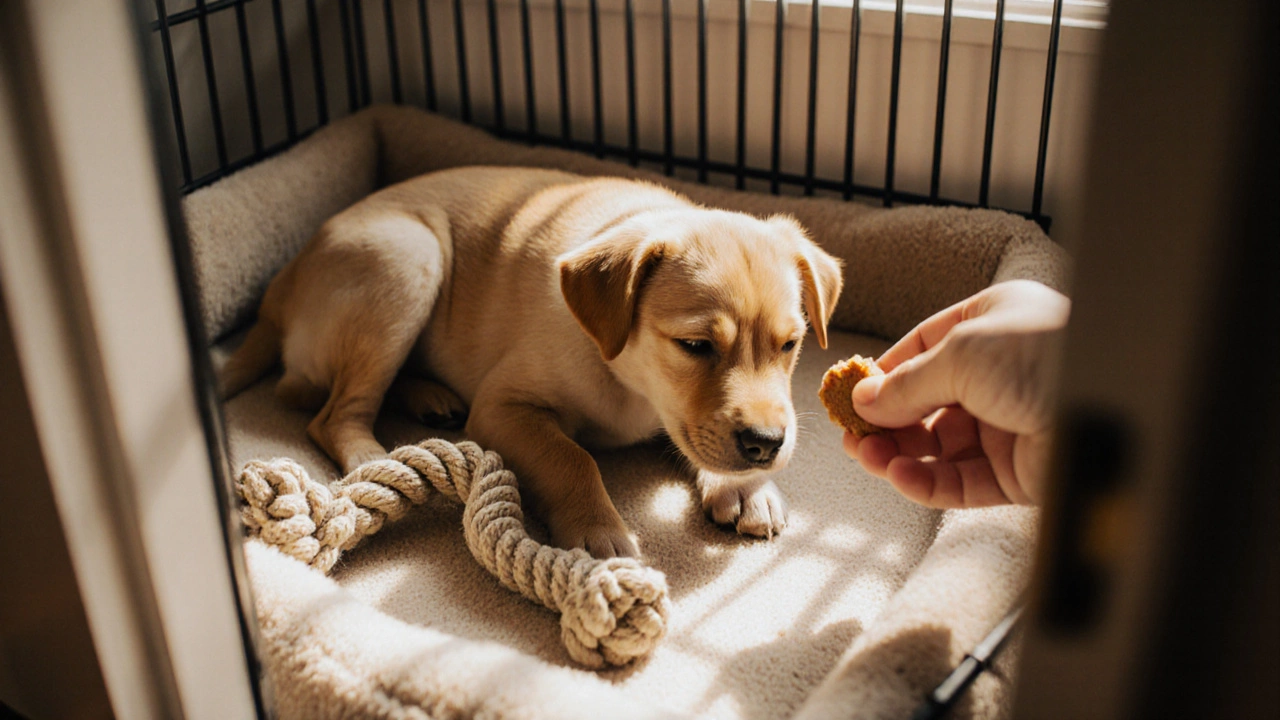
Puppy Crate Time: How Many Hours Per Day Is Safe?
Learn the safe amount of daily crate time for puppies, with age‑based guidelines, signs of over‑crating, and practical tips to keep your pup happy and healthy.
View more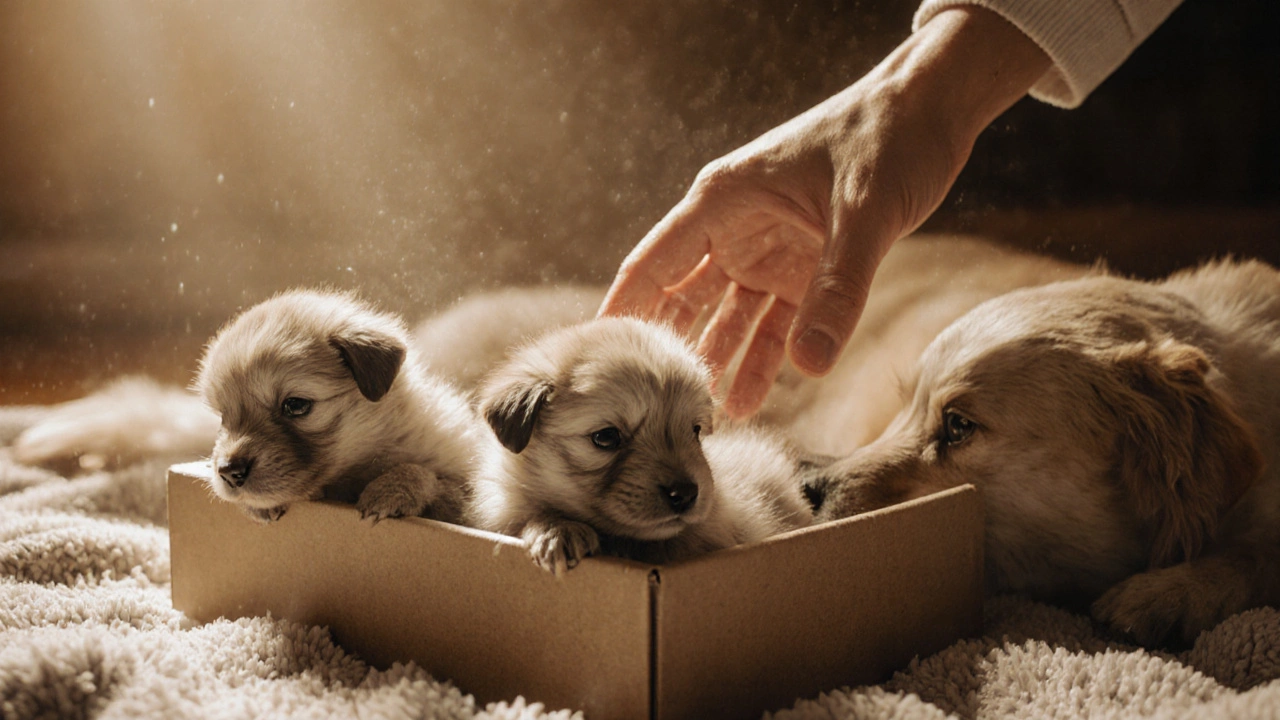
Can You Touch 3-Day-Old Puppies? Risks, Guidelines & Safe Handling Tips
Learn if and how to safely touch 3‑day‑old puppies, the risks involved, and step‑by‑step guidelines to protect their health and development.
View more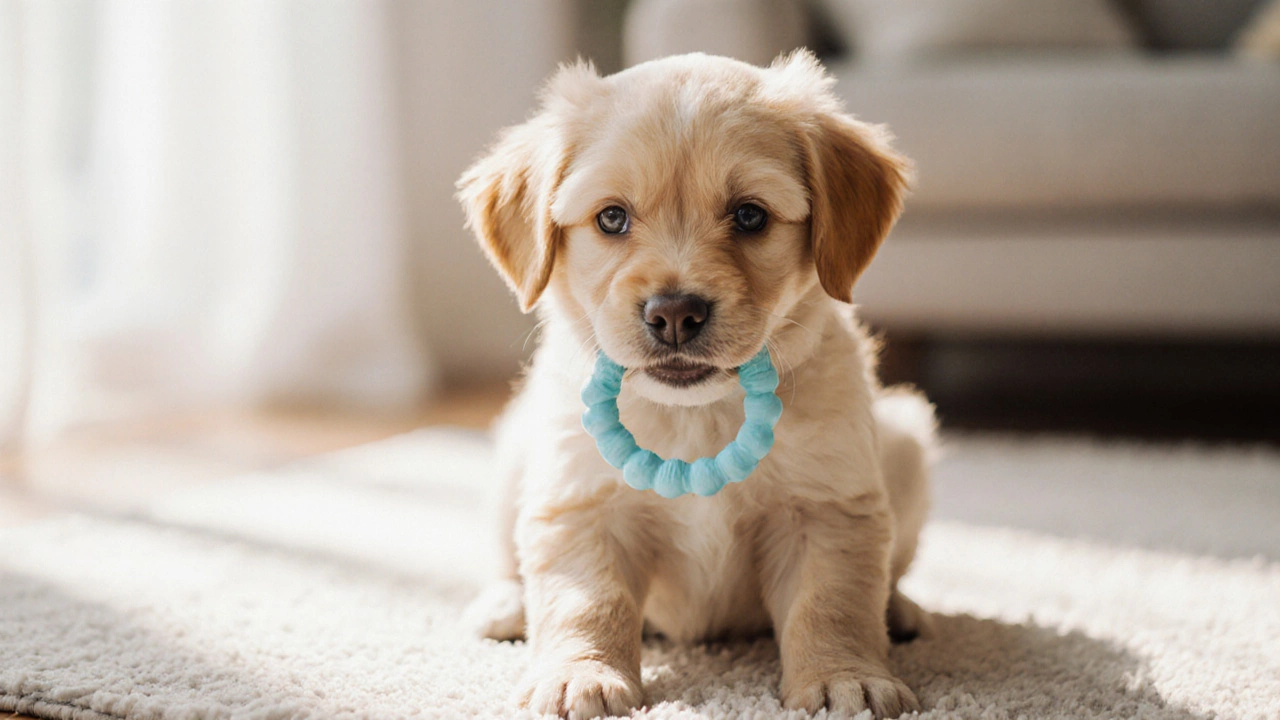
Safe Chew Options for 8‑Week‑Old Puppies: What to Offer and What to Skip
Learn which chews are safe for an 8‑week‑old puppy, how to pick the right toys, DIY options, and red flags to avoid for a smooth teething period.
View more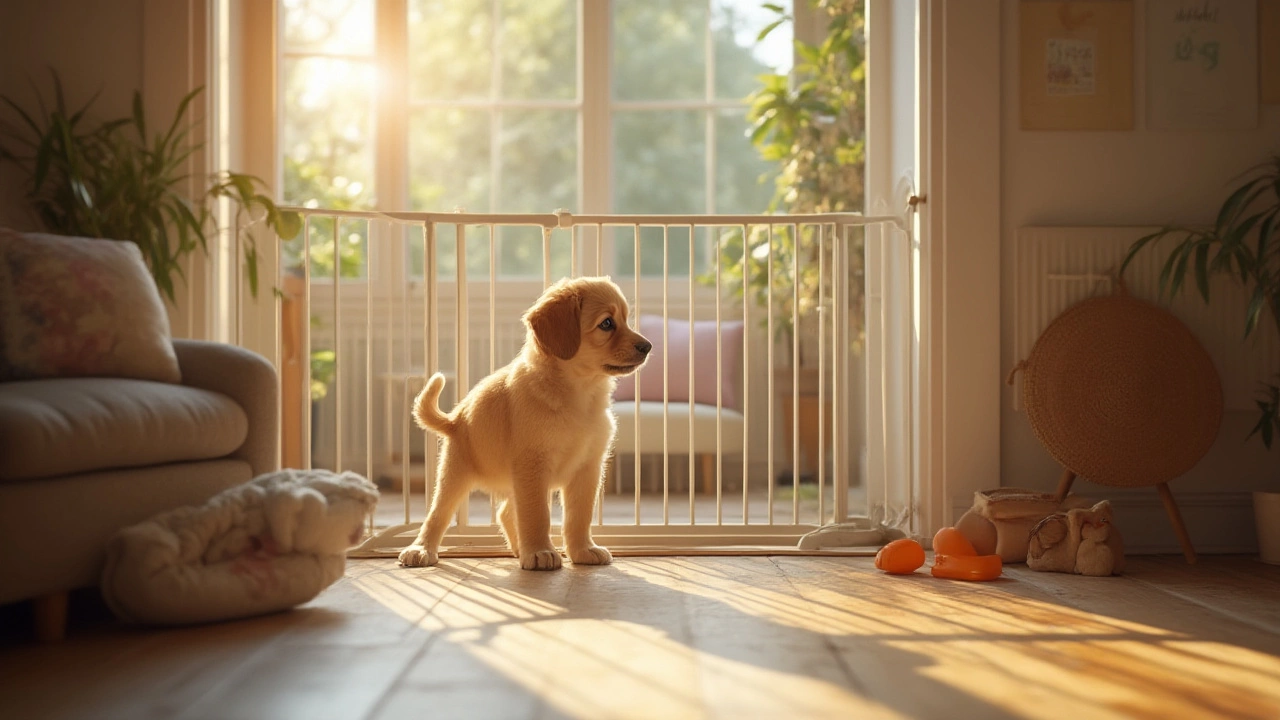
When to Let Your Puppy Roam the House: Training, Timing, and Safety Secrets
Wondering when to let your puppy roam the house? Find out how to time it right, prep your home, and avoid common mistakes for a happy, well-behaved pup.
View more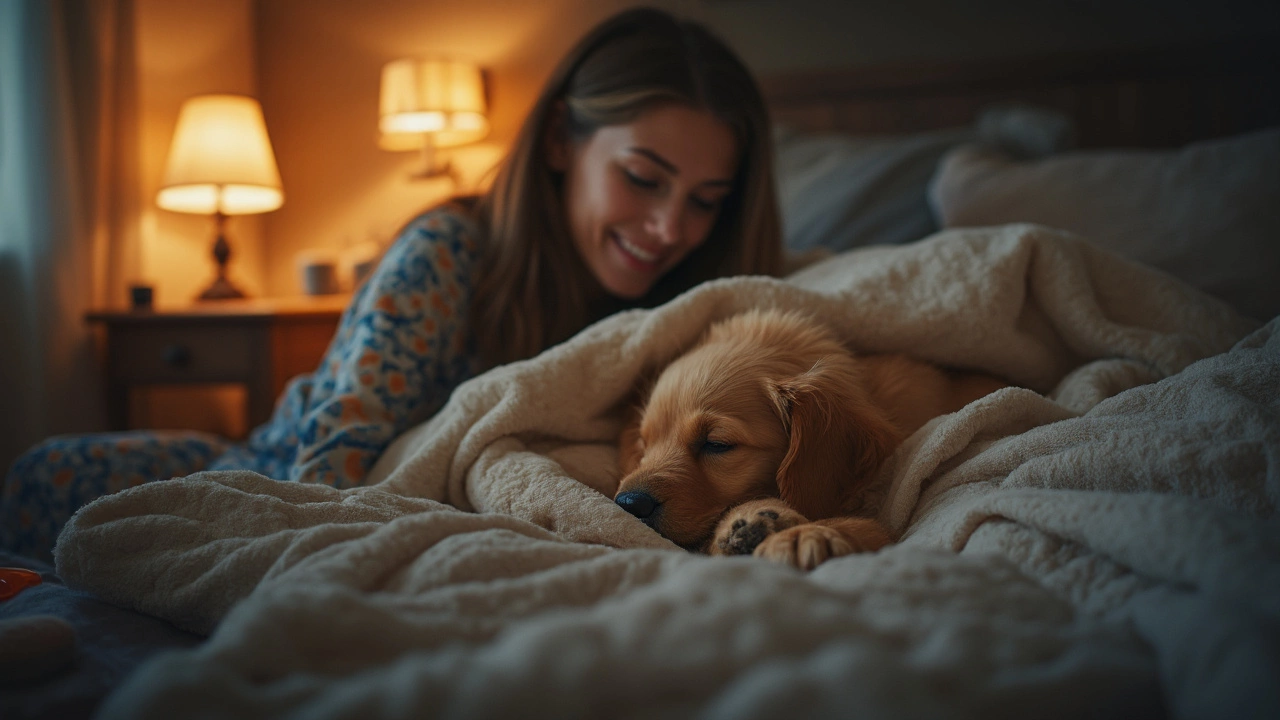
Can an 8 Week Old Puppy Sleep Through the Night? What to Expect
Worried your 8 week old puppy won't let you get any rest? This article explains what’s normal for puppy sleep at this age and why their nights don't always match yours. You’ll get real-world tips for helping your pup (and you) get more sleep. Learn how long puppies can actually hold their bladder, and find out how to set up bedtime for better nights. Whether you’re a first-time puppy parent or just need reassurance, this guide has you covered.
View more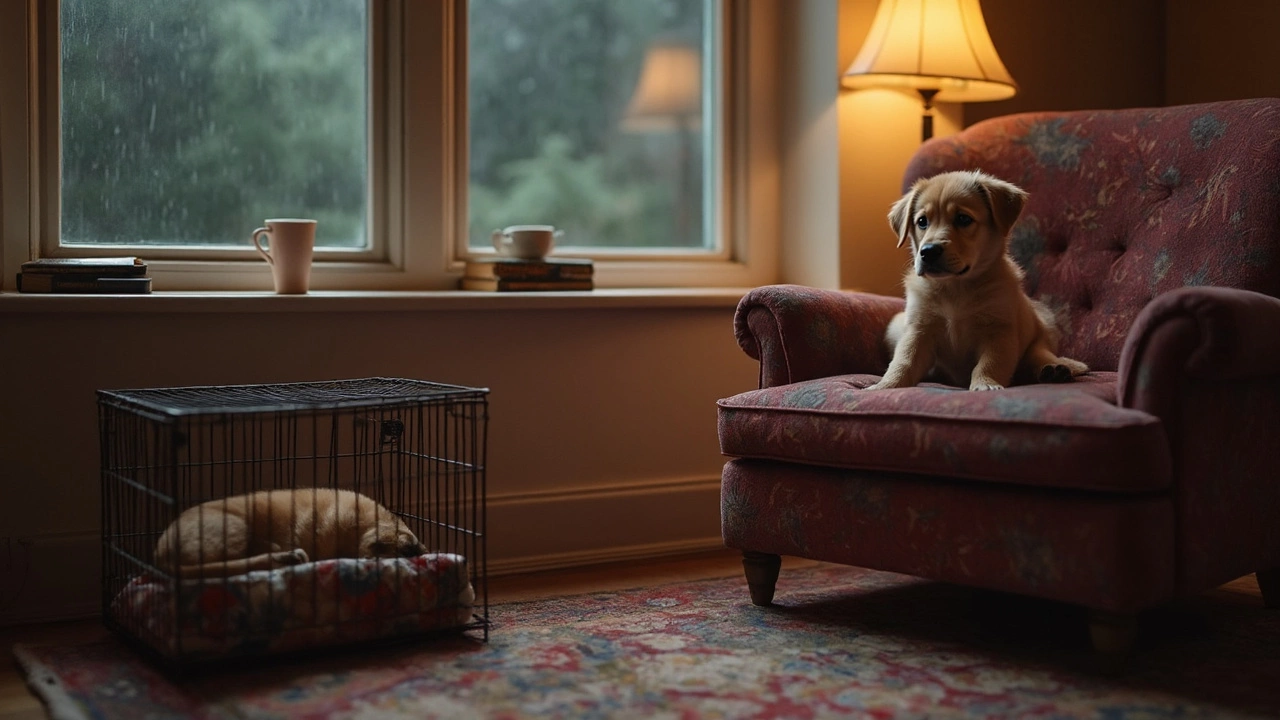
Should a Puppy Sleep in a Crate? Simple Facts and Real-Life Tips
Ever wondered if your new puppy should sleep in a crate? This article breaks down the pros, the drawbacks, and the best approaches for crate training at night. Discover what actually works for comfort, house-training, and safety, plus some surprising facts from real dog owners. Find out what your puppy might prefer and how to avoid the most common mistakes. Get practical, no-nonsense tips whether you’re a first-time pup parent or still on the fence about crates.
View more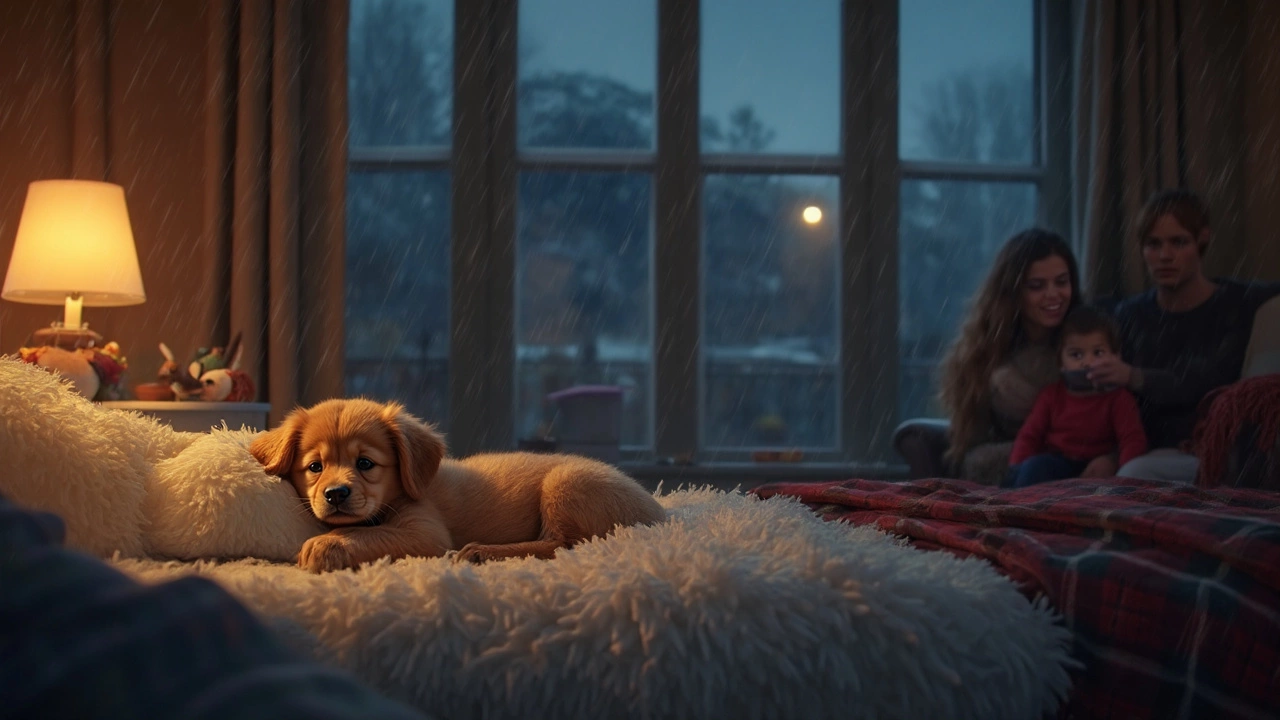
Should I Wake My Puppy at Night to Go Potty? Simple Answers for Sleep-Deprived Owners
Are you supposed to wake your puppy at night so they won’t have accidents? Eating, sleeping, and bathroom breaks are a puppy’s full-time job, and nighttime can get tricky. This article breaks down whether you need to set those midnight alarms plus when you can finally enjoy a full night’s sleep again. Expect real tips to prevent accidents, protect your sleep, and raise a well-trained pup.
View more